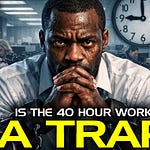When the “Answer Man” Wonders If He Was Wrong: A Reflection on the Shutdown and Regret
I’ve never been one to chase popularity or whittle my message to what’s safest. Call me Mr. Political, call me opinionated — I’m just a man who wants his country to work for its people, not its politics. Last night, in a conversation with my friend, I admitted something I don’t often admit: I’m starting to feel some regret.
I say that with weight, because I believed in Donald Trump when he ran. I wasn’t a party man — I never wore a red or blue label — but his promises resonated. Tough on crime, less government overreach, stronger borders, “drained swamp” talk: those tapped into genuine frustration many of us felt with career politicians. So, I gave some support.
But this shutdown — now playing out in real time — is different. It’s one thing to promise change. It’s another to weaponize governance. And so many who backed Trump, even hesitantly, are now asking: Did I give trust too easily?
The Shutdown, Not a Haunting Ghost But a Loud Alarm
As of October 1, 2025, the U.S. government entered a shutdown after Congress failed to pass funding legislation for the 2026 fiscal year. Wikipedia+2Reuters+2 Hundreds of thousands of federal workers are furloughed; many others are working without pay. Wikipedia+2The Washington Post+2 Billions in lost economic output each week are being forecasted. The Guardian+1 Critical functions—public health, oversight, basic bureaucracy—are weakened. Reuters+2The Washington Post+2
This is not a theoretical negotiation. This is a standoff. And it’s hurting the people — the ones we claimed to care about when we voted.
The twist, though, is that this shutdown is different from past ones. This time, the administration is not only furloughing staff — they’re preparing for mass firings. Scientists, federal health workers, civil servants — many were told to brace for permanent cuts. The message feels less like a tactic and more like a restructuring, one where citizens get the back end.
Why Some of Us Feel a Sting of Betrayal
Let me say: regret is not the same as shame. I still believe self-ownership matters. But regret is a recognition: maybe I didn’t ask enough questions, didn’t demand accountability, or believed that “outsider” rhetoric would overcome political inertia.
Here are the thoughts coming to mind:
The promise vs. the reality gap. Promises about “draining the swamp” and making government more efficient are fine until you see the boots-on-the-ground consequences: people unpaid, services halted, institutions weakened. A government is not just a tool — it is also a responsibility to protect the vulnerable.
Falling into the trap of opposition rhetoric. I feared, as many did, that Democrats or the left would overreach. I worried about Kamala Harris, I worried about policies I disagreed with. That fear pushed me to lean toward certain messages. But fear isn’t a policy. And aligning with someone’s fear of the other side doesn’t guarantee you get the leadership you want.
Inaction is complicity. At some point, silence or patience becomes assent. If you backed someone because of his proposals, it’s valid to expect scrutiny when those proposals are abandoned, distorted, or weaponized. To stay silent now is to tell others: I signed on unconditionally.
The cost to workers, institutions, trust. If you believed in small government, that’s one thing. But to allow a shutdown that threatens infrastructure, health, science, education — those are not partisan luxuries. They are foundational to what keeps this country from tearing at the seams.
A Message to Others Quietly Doubting Their Choices
If you, like me, once leaned toward Trump — not out of love for his personality but out of frustration with “the system” — and now feel that knot in your stomach, know this: you are not alone. You are not a hypocrite for rethinking. You’re engaging.
Here’s what I say to you — and to myself — going forward:
Demand specificity. Don’t settle for slogans. Ask: What is the policy? Who is impacted? How will the transition be managed?
Follow the people, not the spokesman. Promises are empty when they hurt children, seniors, low-income families, or those who depend on federal services.
Insist on accountability. Public office is public trust. When trust is broken, those who broke it must answer.
Be willing to pivot. Politics allow for change. If one path fails, it’s not shame to walk another — as long as you keep your compass: justice, fairness, dignity.
Don’t give in to cynicism. Questioning your own past does not force you to the opposite extreme. You can move forward without bitterness.
Regret Is a Teacher, Not a Sentence
I won’t pretend I have all the answers. I don’t. But what I know is this: when you give someone moral credit, you don’t stop because the billboard is polished. You stop when you see the cracks.
If this shutdown ends with pain for the people, the damage won’t just be fiscal. It will be trust lost. And that’s costly in ways dollars can’t count.
So yes, I’m reflecting, and yes, I’m admitting: I was somewhat wrong. I supported ideas that I hoped would break the cycle. But cycles are stubborn. And the real test—always—is what happens when governance meets crisis.
I’ll keep speaking. I’ll keep watching. And I’ll keep expecting the leaders I supported—or opposed—to pay attention to the people, not just the politics.












